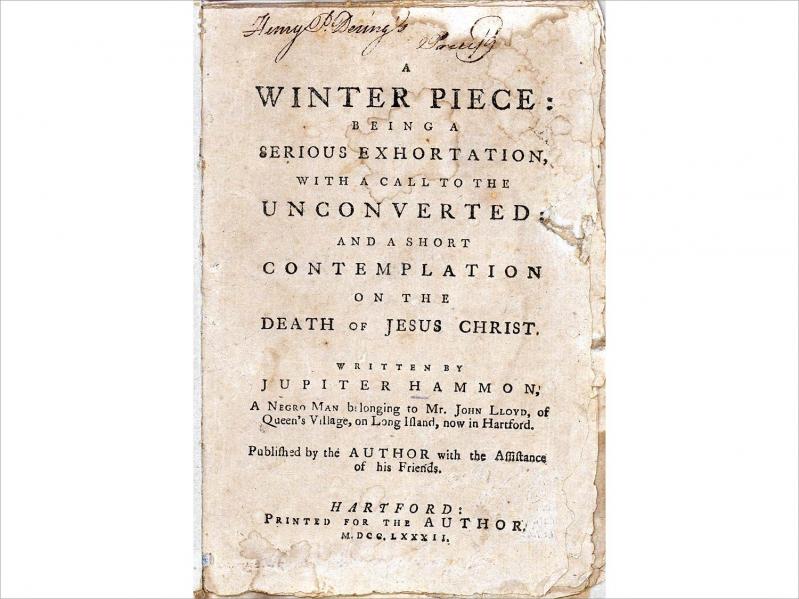Jupiter Hammon (1711-circa 1806), an enslaved person, was the first published African-American poet in North America. Hammon was enslaved on Long Island at Lloyd Manor, which adjoins Caumsett State Park, by Henry Lloyd (1685-1763) and later by Henry’s son Joseph Lloyd (1716-1780). The Lloyds benefited from his labor as a servant, courier, clerk, negotiator, and bookkeeper.
This copy of Hammon’s 1782 essay “A Winter Piece: being a serious exhortation, with a call to the unconverted: and a short contemplation on the death of Jesus Christ” belonged to Sag Harbor’s first customs master, Henry Packer Dering (1762-1822), who inscribed his name on the cover. Hammon’s writing focuses on laborers as the recipients of salvation, referencing biblical passages.
Hammon published this piece at around 70 years old, while living as an enslaved refugee in Connecticut with the Lloyd family, not long after the death of Joseph Lloyd, following which his estate, including Jupiter Hammon, passed to Joseph’s nephew John Lloyd (1745-1792).
Included in this publication is Hammon’s “A Poem for Children With Thoughts on Death,” a rhyming poem with a slightly macabre title for modern tastes. When he published it in 1782, his enslaver had recently died in despair, Long Island remained occupied by the British after years of ongoing war, and child mortality rates remained high. The poem follows common themes from his other writing, focusing on religious glories, urging children to pray and read Scripture, and describing deceased children being welcomed to heaven.
Hammon’s education probably started with an Anglican Church missionary education program, although Preservation Long Island suggests he may have been educated by the Lloyd family in a schoolhouse on the Lloyd Manor property. The Great Awakening had placed a cultural emphasis on literacy for religious purposes, while Hammon’s enslavers benefited from his literacy as a means to advance their business interests.
Jupiter Hammon’s writings were widely circulated in religious and abolitionist circles, and his heavy use of metaphor and symbolism led him to be recognized as one of the founders of African-American literature and intellectualism.
Andrea Meyer, a librarian and archivist, is head of collection for the East Hampton Library’s Long Island Collection.




